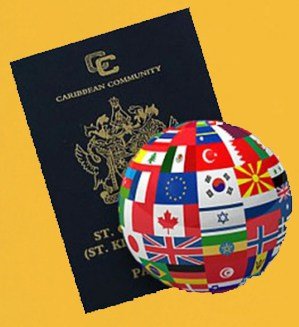Table of Contents
- Introduction
- What is a Diplomatic Passport?
- Benefits and Privileges of a Diplomatic Passport
3.1 Visa-Free Travel
3.2 Diplomatic Immunity - Eligibility for a Diplomatic Passport
4.1 Diplomats and Government Officials
4.2 Special Cases - Application Process for a Diplomatic Passport
5.1 Contacting the Ministry of Foreign Affairs
5.2 Required Documents
5.3 Security Clearance - Validity and Renewal of a Diplomatic Passport
- Traveling with a Diplomatic Passport
7.1 Entry and Exit Procedures
7.2 Customs and Immigration - Conclusion
1. Introduction
A diplomatic passport is a travel document issued to diplomats and government officials representing their respective countries on official business abroad. In this article, we will provide an overview of diplomatic passports, including their purpose, benefits, eligibility criteria, application process, and travel considerations.
2. What is a Diplomatic Passport?
A diplomatic passport is a type of passport issued to individuals who hold diplomatic or official positions within their government. It serves as a means of identification and facilitates travel for diplomatic purposes. Diplomatic passports are typically differentiated by their distinctive cover, color, and special privileges.
3. Benefits and Privileges of a Diplomatic Passport
3.1 Visa-Free Travel
One of the significant benefits of holding a diplomatic passport is the ability to travel visa-free or with simplified visa procedures to many countries. Diplomats can enjoy expedited entry and exit processes, bypassing lengthy visa application procedures.
3.2 Diplomatic Immunity
Diplomatic immunity is another privilege associated with diplomatic passports. It grants diplomats certain legal protections and exemptions from the jurisdiction of the host country. This immunity extends to personal inviolability and immunity from criminal and civil jurisdiction, enabling diplomats to perform their duties without fear of prosecution or interference.
4. Eligibility for a Diplomatic Passport
4.1 Diplomats and Government Officials
Diplomatic passports are typically issued to individuals holding diplomatic positions within their government, including ambassadors, consuls, and high-ranking officials. These individuals are responsible for representing their country’s interests abroad and engaging in diplomatic relations with foreign governments.
4.2 Special Cases
In certain cases, diplomatic passports may be issued to individuals who are not directly involved in diplomatic affairs but play a crucial role in international relations or government functions. This may include certain government officials, military personnel on official missions, or individuals representing international organizations.
5. Application Process for a Diplomatic Passport
5.1 Contacting the Ministry of Foreign Affairs
The application process for a diplomatic passport typically involves contacting the Ministry of Foreign Affairs or the relevant government department responsible for diplomatic matters. They will provide the necessary information, guidelines, and application forms.
5.2 Required Documents
The required documents may vary depending on the country and specific circumstances. Generally, applicants will need to provide a completed application form, proof of their diplomatic or official status, a letter from their government confirming their appointment or assignment, and supporting documentation such as a valid national passport and photographs.
5.3 Security Clearance
Due to the sensitive nature of diplomatic passports, applicants may be subject to security clearance and background checks. This process ensures the integrity and security of the diplomatic passport and prevents misuse or fraudulent applications.
6. Validity and Renewal of a Diplomatic Passport
The validity period of a diplomatic passport may vary between countries. Typically, diplomatic passports have a longer validity period compared to regular passports. Renewal procedures are often
facilitated through the Ministry of Foreign Affairs or the designated authority responsible for diplomatic matters.
7. Traveling with a Diplomatic Passport
7.1 Entry and Exit Procedures
When traveling with a diplomatic passport, diplomats are often granted preferential treatment at immigration checkpoints. They may have dedicated lanes or diplomatic channels to expedite their entry and exit processes.
7.2 Customs and Immigration
Diplomats are subject to specific customs and immigration regulations when traveling with a diplomatic passport. While they may enjoy certain privileges and exemptions, it is important to adhere to the customs and regulations of the host country to avoid any complications or misunderstandings.
8. Conclusion
A diplomatic passport is an essential travel document that provides diplomats and government officials with unique privileges and benefits. From visa-free travel to diplomatic immunity, holding a diplomatic passport facilitates the smooth execution of diplomatic duties and international engagements. Eligibility for a diplomatic passport is generally limited to individuals serving in diplomatic or official capacities. The application process involves contacting the Ministry of Foreign Affairs or the relevant government department, providing the required documentation, and undergoing security clearance. Traveling with a diplomatic passport grants diplomats preferential treatment at immigration checkpoints, but it is important to comply with customs and immigration regulations of the host country.
